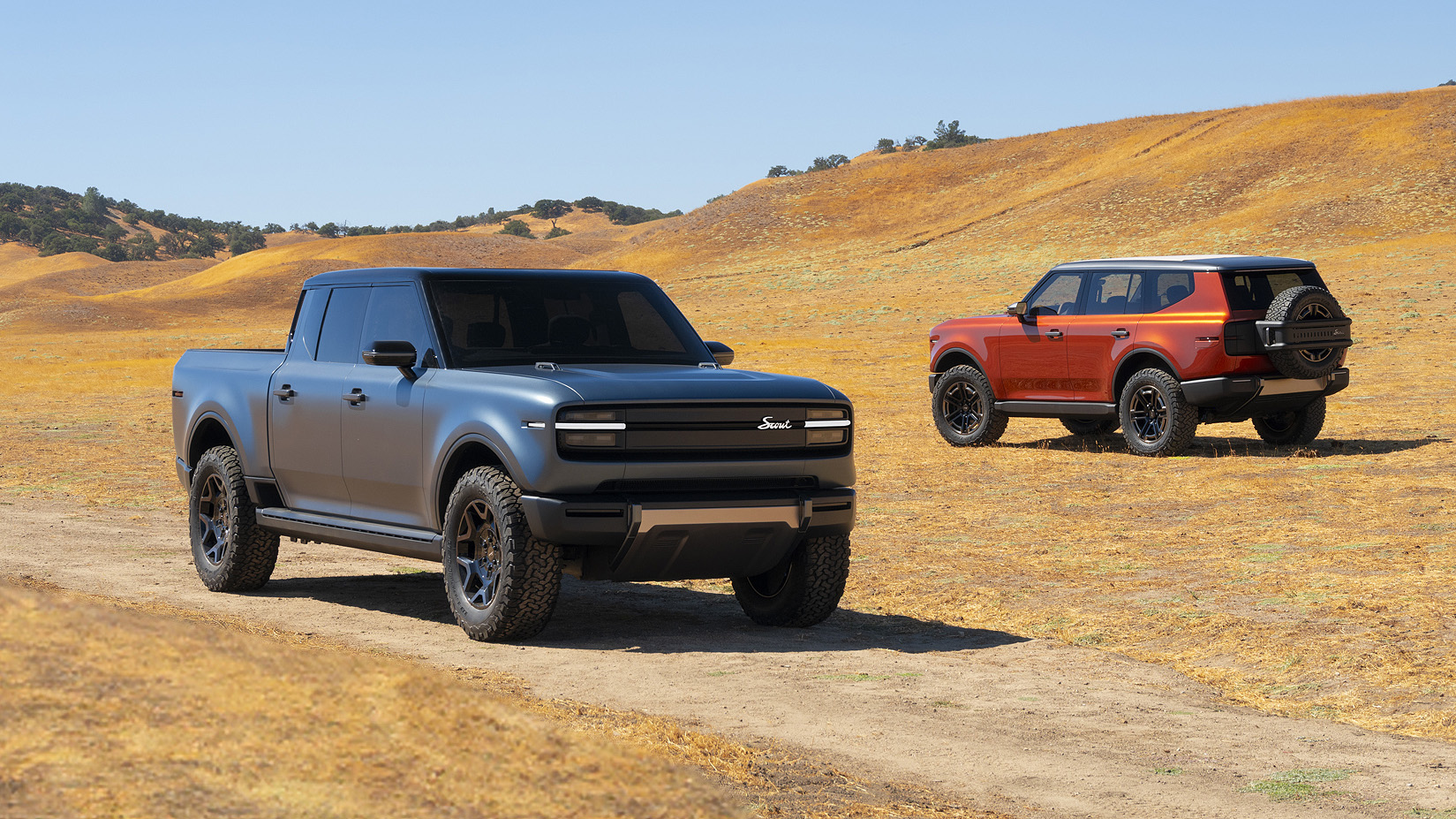

When Scout Motors finally unveiled its first two models, the Traveler SUV and Terra pickup truck, it also announced that it was going to sell them directly to customers, cutting out dealers as middlemen. Direct-sales models aren’t all that new anymore, thanks to upstart EV brands like Tesla, Rivian, and Lucid. However, the National Automobile Dealers Association (NADA) has a particular bone to pick with Scout over its strategy, and it intends to block the retail plan however it can.
According to Automotive News, NADA CEO Mike Stanton said that the union is going to fight Scout “in courthouses and statehouses across the country.”
Why is NADA so upset over Scout’s direct-sales approach, when a growing number of new automakers are doing the same? It’s got everything to do with Volkswagen. Scout Motors is under the Volkswagen Group umbrella, giving it clear ties to a “legacy” manufacturer that those other EV brands don’t have. While it’s become common for newcomers with no existing dealer network to sell directly to customers, the union feels that VW’s longstanding U.S. footprint invalidates that excuse.

“In the vast majority of states, the OEMs are not permitted to sell direct or compete with their dealers,” said Richard Sox, a managing partner at Bass Sox Mercer of Tallahassee, Florida, the law firm representing NADA. “There are some exceptions to that, but those exceptions generally relate to the non-legacy OEMs who do not have and have never had a dealer network, i.e., Tesla.”
Since Scout is owned by Volkswagen, NADA views it as a legacy OEM. “They’re affiliated with Scout, they have ownership,” Sox said about VW’s relationship to the new marque. “They have potentially some control. It certainly complicates Scout’s ability to sell direct in those particular states that would otherwise allow a manufacturer that is completely separate from a legacy OEM to sell direct.”
For buyers, Scout’s direct-sales approach seems very attractive. The company wants to set up 25 locations by the time production starts in 2027, where customers can check out and test drive its vehicles. However, most sales will be done via an app, where customers will supposedly be able to do everything from picking a model to financing in minutes. The lack of haggling with salespeople, having to wait while they pull the classic “Let me speak to my manager” line for 45 minutes, and watching out for unnecessary fees make direct sales more desirable than the typical dealer experience for many car shoppers.

However, Geoffrey Pohanka, chairman of the Pohanka Automotive Group that owns two VW dealerships, feels that Scouts should be sold at their parent company’s dealerships. “VW has worked hard to reestablish itself in the United States, and they’re very sincere about that,” Pohanka said. “This is contradictory to all the efforts they’ve made to reinvigorate the brand with new models.”
Pohanka does have a point, as VW is struggling to sell cars in the States, especially EVs. The new ID.Buzz might get some traction, thanks to its nostalgic styling and marketing, but that’s only one model. If VW added Scouts to its dealerships, it could earn the brand a much-needed boost in sales, as they’d practically serve as electric flagships. This would be especially useful right now, as Volkswagen is looking to close three German plants—something it’s never done even once in its history—and lay off thousands of employees to cut costs. An electric shot in the arm in the American market is the sort of win VW could definitely use.
However, aside from a corporate roof, Volkswagen’s EVs share little with Scout’s. They’re built on their own chassis, use their own powertrains, and have their own styling. There’s some software crossover, but Scout is clearly trying to carry itself differently than Volkswagen, and its potential lies in its ability to excite buyers that VW isn’t reaching right now. Plus, the subbrand structure runs the risk of confusing customers—just look at Jeep’s failed Wagoneer experiment.
It’s unclear how Scout is going to make the direct sales thing stick. It could kick off in a handful of states with more lenient auto-retail laws, before slowly branching outward as the name gains more market appeal. However it starts, NADA seems ready to fight.
Got tips? Send ’em to tips@thedrive.com